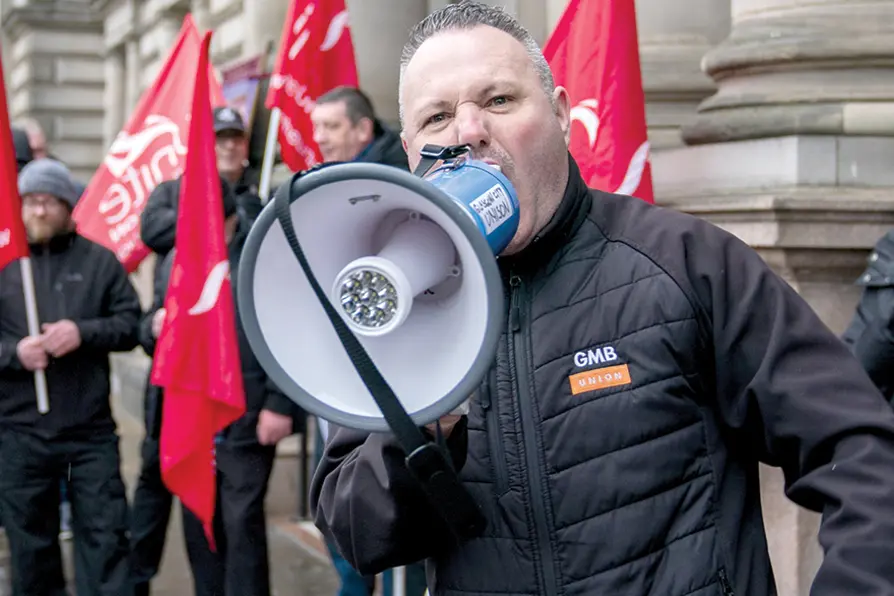As tens of thousands return to the streets for the first national Palestine march of 2026, this movement refuses to be sidelined or silenced, says PETER LEARY

 WE WILL BE HEARD: Convenor for GMB Scotland Chris Mitchell speaks as members of the Unison, GMB, Unite and the EIS trade unions stage a lunchtime protest outside City Chambers, George Square, Glasgow demand a one year no-cuts budget, February 19 2025
WE WILL BE HEARD: Convenor for GMB Scotland Chris Mitchell speaks as members of the Unison, GMB, Unite and the EIS trade unions stage a lunchtime protest outside City Chambers, George Square, Glasgow demand a one year no-cuts budget, February 19 2025
FOR decades, workers in Britain have faced a steady erosion of their rights, job security and real wages.
The objective of the Employment Rights Bill, rightly heralded as the most significant expansion of workers’ rights in a generation, is to reverse this trend and improve working conditions.
However, its passage through Parliament highlighted just how significant the gaps in employment law and trade union legislation have developed over the decades and have so limited the effectiveness of unions in their task of fully defending their members.

Labour must not allow unelected members of the upper house to erode a single provision of the Employment Rights Bill, argues ANDY MCDONALD MP

The Bill addresses some exploitation but leaves trade unions heavily regulated, most workers without collective bargaining coverage, and fails to tackle the balance of power that enables constant mutation of bad practice, write KEITH EWING and LORD JOHN HENDY KC

It is only trade union power at work that will materially improve the lot of working people as a class but without sector-wide collective bargaining and a right to take sympathetic strike action, we are hamstrung in the fight to tilt back the balance of power, argues ADRIAN WEIR










